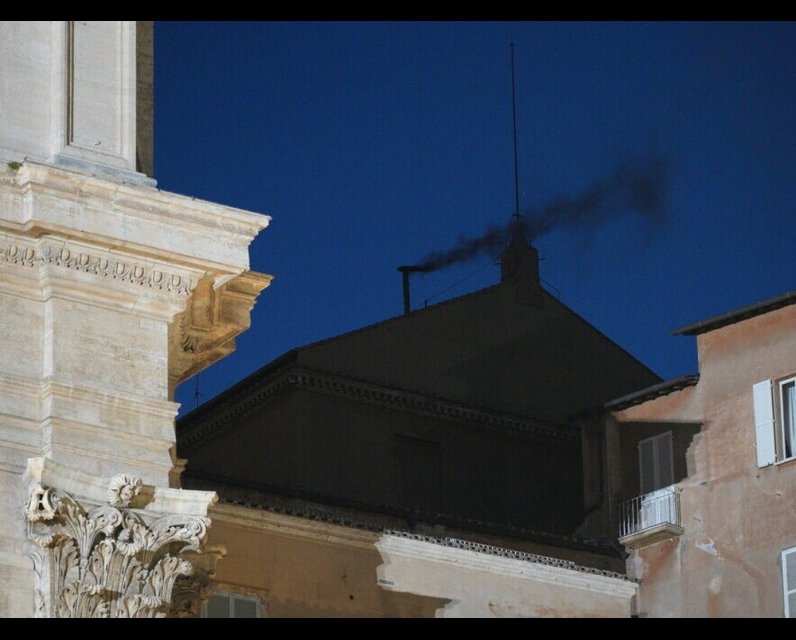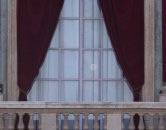Source Feed: National Post
Author: Stewart Lewis
Publication Date: May 8, 2025 - 08:00
What's in a 'papal name' and what the new pope's choice could mean for the church
May 8, 2025

The significance of a papal name lies in its symbolic power and the message it sends about a new pope’s intentions, priorities, and the direction he hopes to set for the Catholic Church.
When a new pope is elected, one of his first acts is to
choose a new name
. It’s a tradition dating back to the early Middle Ages. This name is not required by doctrine but has become a deeply rooted custom.
The chosen name often honours a saint, a previous pope, or a particular legacy the new pontiff wishes to emulate.
How do popes choose a papal name?
Pope Francis selected his name to
honour St. Francis of Assisi,
signalling a focus on humility, care for the poor, and environmental stewardship. Similarly, Pope John Paul I
combined the names of his two immediate predecessors
to signal continuity and commitment to their reforms.
Ultimately, the papal name serves as a
public declaration of the new pope’s vision
and the values he intends to emphasize during his papacy.
It is closely watched as an early indicator of whether the new leader will
continue the work of his predecessors or chart a new course
for the Church.
Do popes ever choose names that have never been used?
Popes
rarely choose a name that has never been used before
. In fact, before Pope Francis in 2013, it had been over 1,000 years since a pope — Pope Lando in 914 — selected a completely new name.
Most popes opt for names with
historical or spiritual significance
. There are, however, several unique papal names from the early centuries that have never been repeated, such as Lando, Romanus, and Formosus.
How might a pope’s cultural background affect his choice?
Different cultures have influenced the choice of papal names in several ways, especially as the Church became more global. In the early centuries, popes from outside Italy — especially from France and Germany — often adopted more traditional or Italian-sounding names to align themselves with their Roman predecessors and the local culture of the papacy. This practice helped foster unity and continuity within the Church.
In modern times, as the
College of Cardinals has become more international
, there is increased potential for popes to choose names that reflect their own cultural backgrounds or honour saints and historical figures important in their home regions.
A pope from Africa or Latin America might select a name associated with early non-Italian pontiffs or saints from those regions to highlight the Church’s diversity and global reach.
Pope Francis, from Argentina, chose a name never before used, making a break from European tradition and emphasizing humility and care for the marginalized, values resonant across cultures.
Overall, while
no formal rules
require popes to choose names based on cultural background, their choices often reflect a desire to reflect their heritage, inclusivity or connect with the broader global Church.
Could a papal name influence the Catholic Church’s relations with other faith traditions?
The connotations of a papal name can significantly
shape the new pope’s relationship with other religious leaders
by pointing to his intended approach to interfaith dialogue, reform, tradition, or reconciliation.
If a pope chooses a name associated with openness, peace, or past efforts at unity, it can foster goodwill and foreshadow a willingness to engage with leaders of other faiths.
Conversely, names linked to periods of conflict or rigid doctrine, like “Pius,” may be
interpreted as a sign of traditionalism or caution
, potentially making interreligious collaboration more challenging.
Have some papal names caused controversy?
Some papal names have been considered
controversial
due to their associations with problematic historical figures or events.
The name “John XXIII” was controversial because it had previously been used by a 15th-century antipope, leading to confusion and debate when Cardinal Angelo Roncalli chose it in 1958.
No pope has ever chosen the name “Peter II,” likely out of respect for Saint Peter, the first pope, and to avoid controversy or the appearance of rivalry with such a foundational figure. However, some antipopes have used the name “Peter II,” which further adds to its contentious nature.
Certain names, like Benedict, have been used by both legitimate popes and antipopes, sometimes creating confusion and controversy in papal history.
Some papal names are avoided due to their association with
notorious or scandalous popes
, such as Alexander VI or Boniface VIII, whose papacies were marked by corruption or conflict.
Our website is the place for the latest breaking news, exclusive scoops, longreads and provocative commentary. Please bookmark nationalpost.com and sign up for our daily newsletter, Posted, here.
Max Pacioretty started the playoffs in the press box.
May 8, 2025 - 12:58 | Globalnews Digital | Global News - Ottawa
White smoke billowed from the Sistine Chapel chimney at 6:07 p.m. Roman time, alerting the crowd of faithful Catholics gathered in St. Peter’s Square that the College of Cardinals have elected a new pope.
The sign comes on the second day of voting and the fourth vote. It means that the Cardinals reached the two-third majority have decided to elevate one of their ranks to be the head of the church.
The gathered crowd cheered in elation as the smoke rose on a beautiful Thursday evening in Rome.
The new pope will soon emerge on the papal balcony, announcing himself and his papal name...
May 8, 2025 - 12:54 | Stewart Lewis | National Post
Quebec is reporting a near-record rate of immigration in 2024, with the province’s population increasing to more than 9.1 million at the start of this year.A new report from Quebec’s statistics institute says nearly 160,000 immigrants arrived in Quebec last year, the second-highest number recorded after 2023.The majority of the newcomers were non-permanent residents, including temporary foreign workers, international students and asylum seekers.
May 8, 2025 - 12:34 | | The Globe and Mail



Comments
Be the first to comment